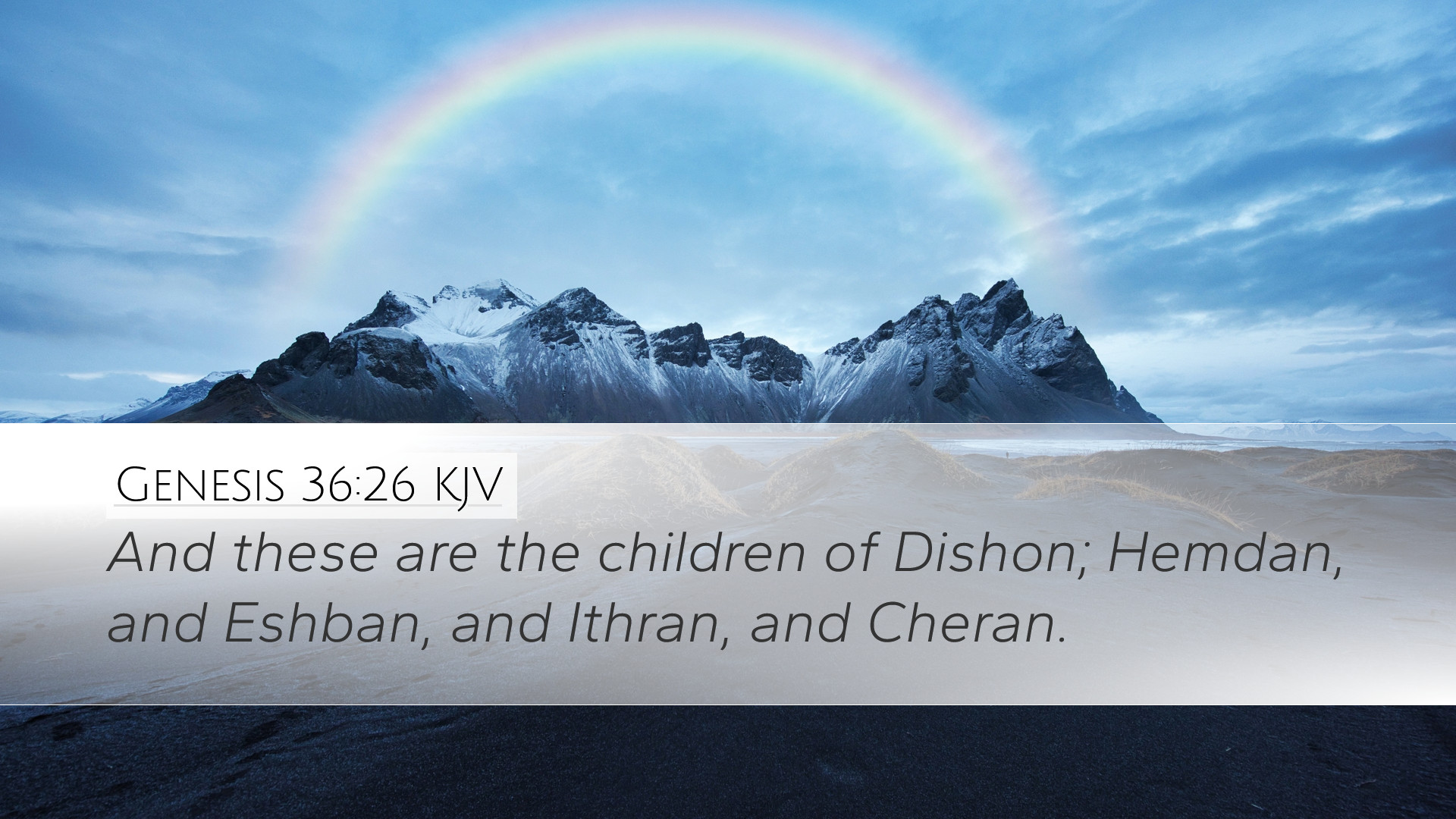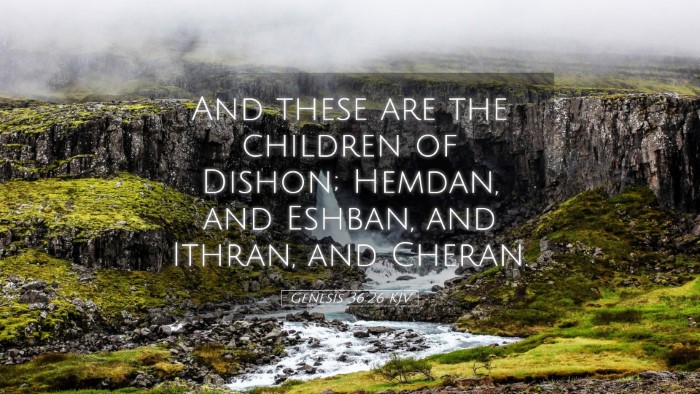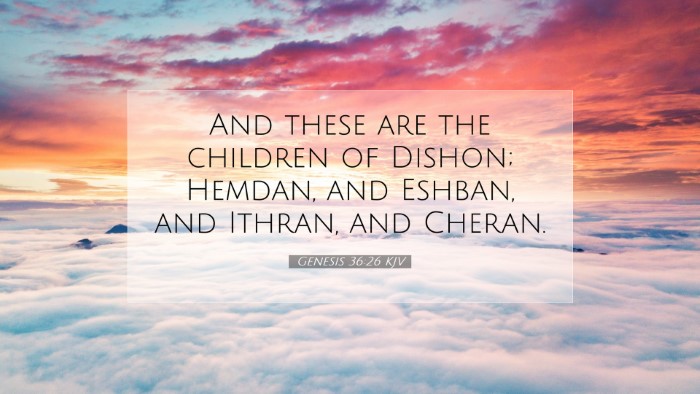Commentary on Genesis 36:26
Verse: Genesis 36:26 - "These are the sons of Dishan: Humam, and Hashban."
This verse is part of a genealogical account primarily focusing on the descendants of Esau, the son of Isaac and Rebekah. The significance of such genealogies in Scripture can seem mundane at first glance, but they carry profound theological and historical implications.
Contextual Analysis
The verses surrounding Genesis 36:26 belong to a larger passage detailing the lineage of Esau, also known as Edom. The chieftains and clans listed in this chapter reflect not only the familial connections but also the establishment of nations that would later play significant roles in biblical history. Understanding this context is indispensable for interpreting the text properly.
Theological Implications
M.Div. Insights: The names mentioned in Genesis 36:26, like Dishan, Humam, and Hashban, point to God's faithfulness in fulfilling His covenantal promises. According to the Abrahamic covenant, descendants would be as numerous as the stars in the sky (Genesis 15:5). This genealogical record provides evidence of that promise being realized through Esau’s line.
God’s Sovereign Plan
Matthew Henry emphasizes that God’s providence is evident in every generation. The descendants of Esau, despite their separation from the covenant of Israel, are significant in God’s overarching plan for humanity. This serves as a stark reminder that even those outside of the covenant are arranged under the sovereignty of God.
Understanding Names in Scripture
Albert Barnes provides insight into the importance of names in the biblical narrative.: The names "Humam" and "Hashban" may have meanings that reflect particular attributes or characteristics significant to the clan or tribe. It would be worthwhile for scholars to investigate the linguistic roots of these names for a deeper understanding of their implications.
Historical and Cultural Context
Understanding the historical background of the Edomites is critical. The Edomites, descended from Esau, lived in the southwestern part of modern Jordan and interacted extensively with Israel. Their history involved both conflict and cooperation with the Israelites, showcasing a complex relationship that holds substantial significance for biblical exegesis.
Conflict and Legacy
Adam Clarke elaborates on the conflicts between Edom and Israel, noting that these dynamics often echoed throughout the history of the nation. The Edomites were viewed variably as both family and foes, descendants of Abraham but also often in opposition to his chosen line through Isaac and Jacob.
Pastoral Applications
For pastors and teachers, this verse and its accompanying commentary drive several pastoral applications:
- Recognizing God’s Sovereignty: Remind congregations that God is actively involved in shaping history, including seemingly minor genealogical details that flesh out His redemptive story.
- Understanding Our Place in God's Narrative: Encourage individuals to see their lives as part of God’s larger tapestry, wherein every name, every person, and every story contributes to His work.
- Cultural Relationships: Use the interplay between Edom and Israel as a point of reflection on familial and societal relationships in today's context, underscoring the need for reconciliation and understanding among communities today.
Application for Theologians and Scholars
This passage invites deeper theological reflection on several fronts:
- Exploration of Covenant Theology: Scholars may explore the implications of the Abrahamic covenant as it pertains to nations formed from figures like Esau.
- Exegesis of Genealogical Texts: An analysis on how genealogical data in the Old Testament contributes to understanding Israel's identity and mission.
- Historical-Critical Method: Examine the historical contexts that shaped the relationships between Israel and Edom throughout the canonical narrative.
Conclusion
Genesis 36:26, while appearing to be a simple mention of names, robustly engages with themes of divine sovereignty, human history, relational dynamics, and the broader narrative of redemption. Each name contributes to the legacy of faith, serving as a reminder of God's promises and providences across generations. By studying such passages, pastors, students, and scholars alike can glean insight into the intricacies of God's plan as revealed throughout Scripture.


